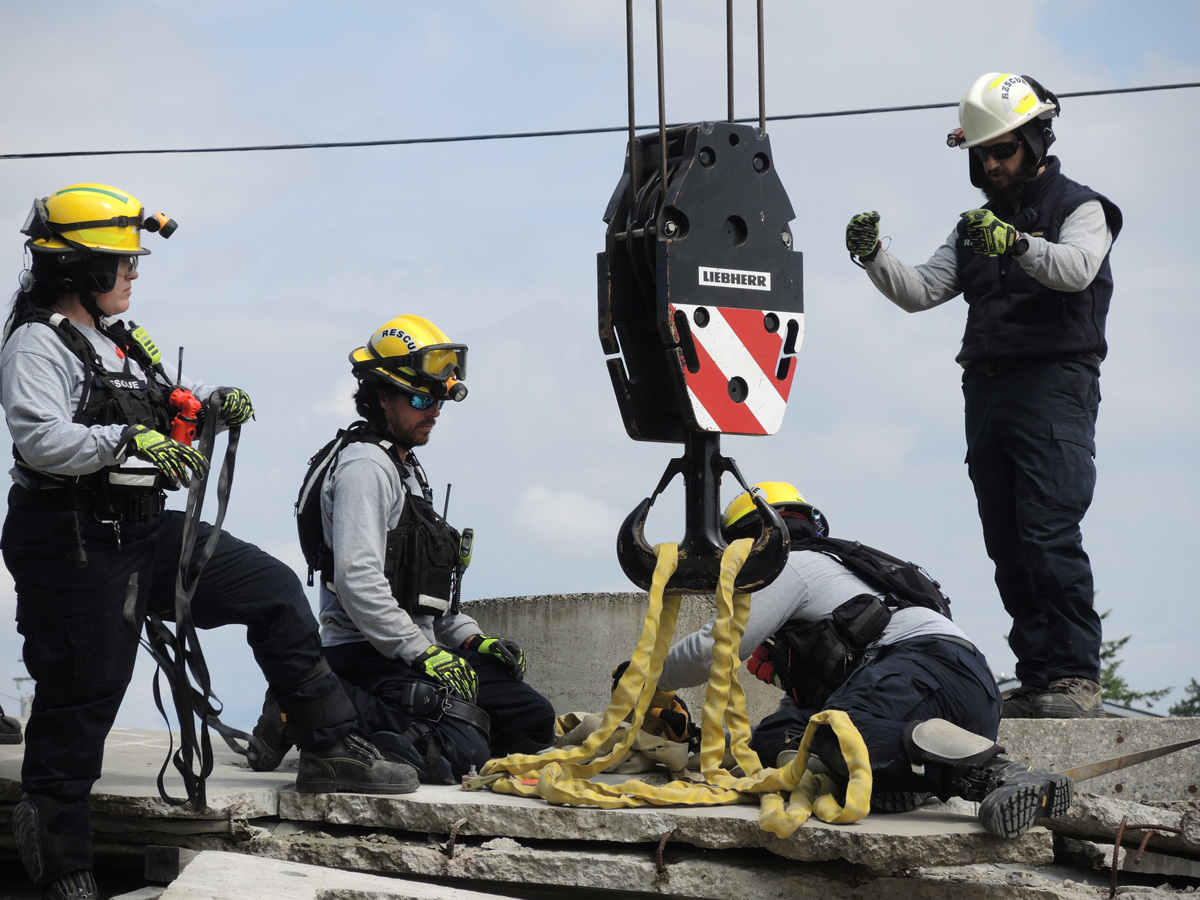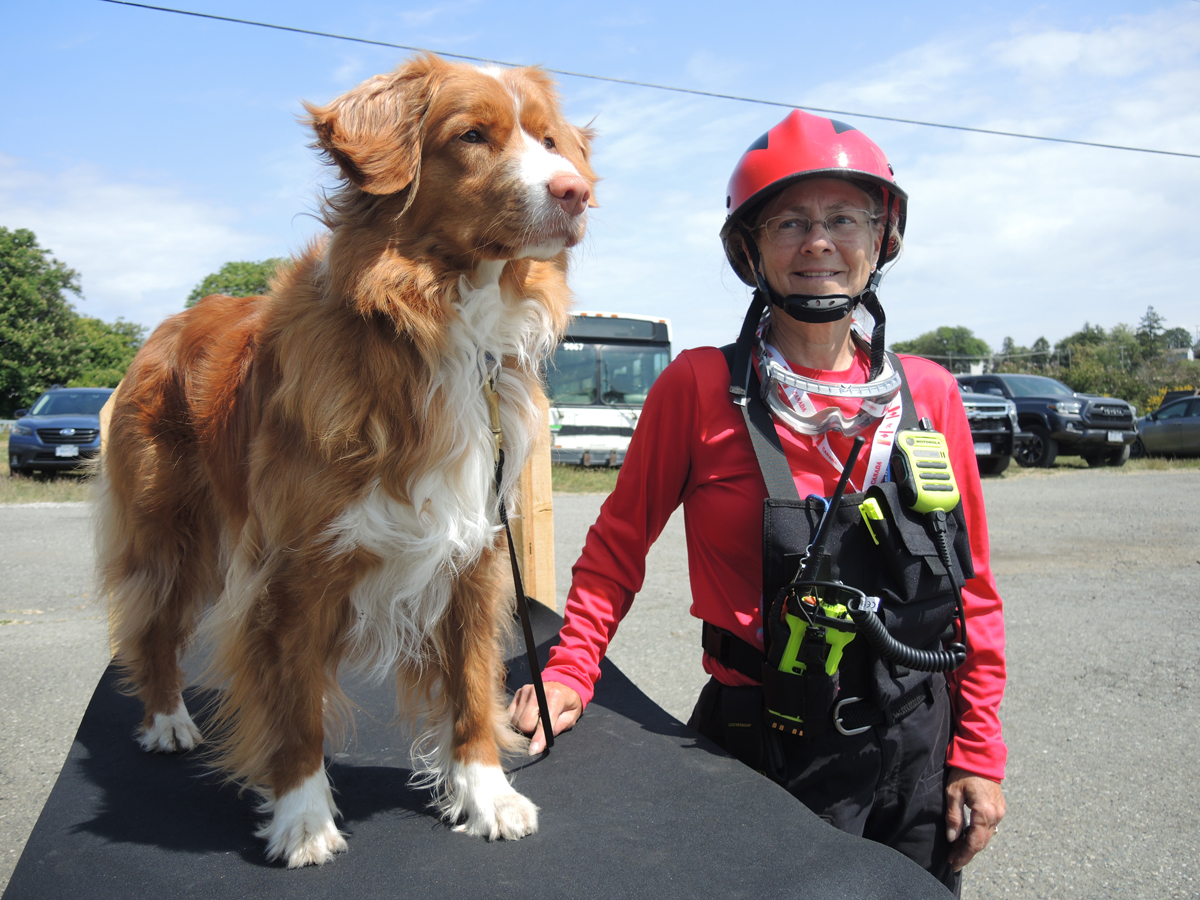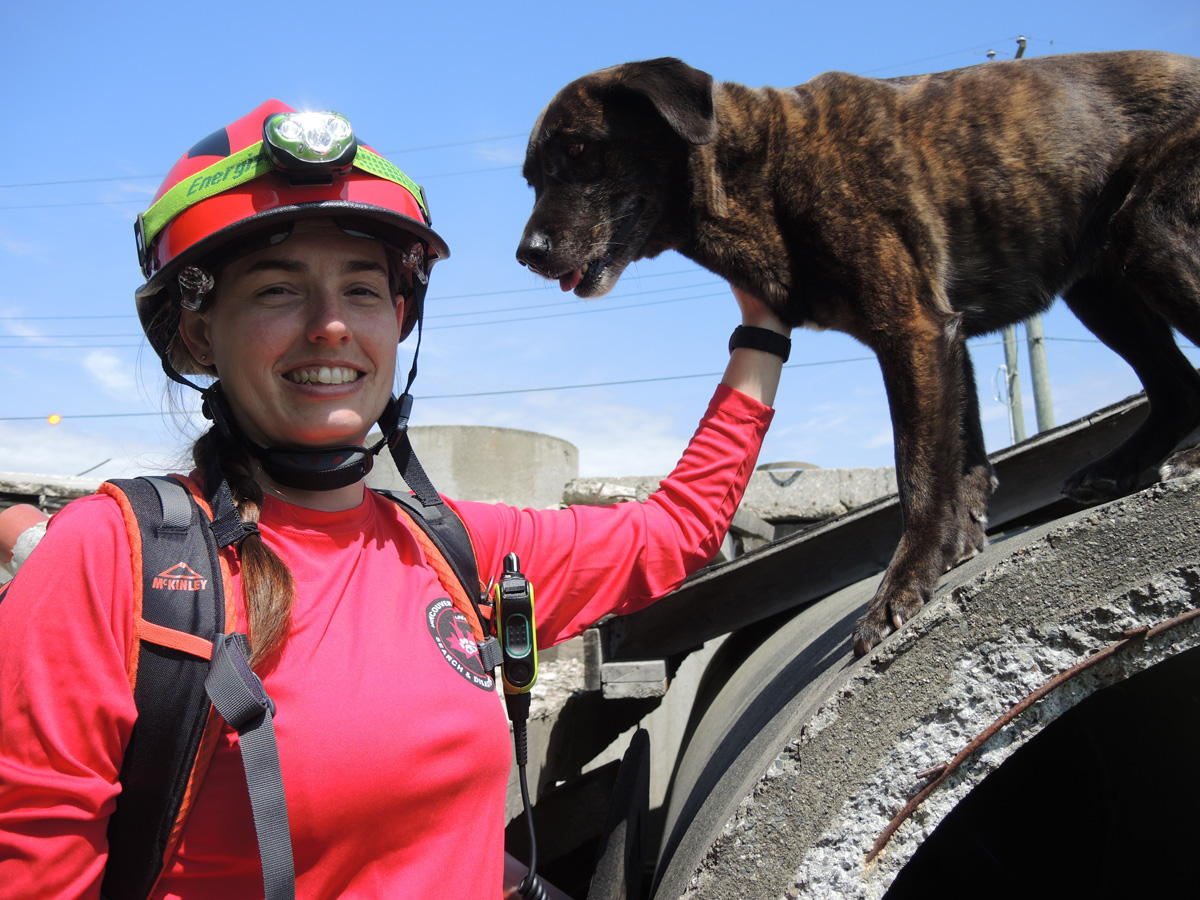MUSAR team trains for ‘the big one’
By Lookout Production on Jun 19, 2023 with Comments 0

Members of the MUSAR team work to clear debris from the top of a pile of concrete rubble at their training site in Work Point, May 31. Photo: Peter Mallett/Lookout
Peter Mallett
Staff Writer
Atop a towering pile of earthquake rubble, volunteers drill fasteners and hooks into giant slabs of concrete. As soon as a piece is secured, a team member gives the thumbs-up sign to a crane operator, who peels away the 1,300 kg block.
With an arsenal of tools in hand, including hacksaws and rebar cutters, rescuers dig for survivors trapped beneath a flattened office building, now reduced to a pile of masonry, pipes and rebar.
Wearing safety equipment, six members of CFB Esquimalt’s Medium Urban Search and Rescue (MUSAR) team train for a search and rescue operation in a make-believe disaster scenario.
“The intent of this training is maintaining the highly technical skills required for this type of dangerous rescue,” says Glenn Cooper, MUSAR Team Commander. “Refreshing the team’s skills continuously throughout the year helps them stay informed on how to respond to a major disaster on CFB Esquimalt property.”
The latest semi-annual training scenario took place from May 29 to June 2 at the team’s training site and headquarters on View Point Street. The training scenario focused on freeing trapped survivors from collapsed buildings after a catastrophic 7.5 earthquake rocked southern Vancouver Island and left a widespread trail of destruction. It brought together 25 MUSAR team members and members of the Canadian Army’s Light Urban Search and Rescue (LUSAR) team, the 15th Field Artillery Regiment of the 39 Canadian Brigade Group, and 12 (Vancouver) Field Ambulance medical unit. The training also involved four dogs and their handlers from volunteer-run Vancouver Island Search and Disaster Dogs of Canada, who integrated into the MUSAR team for the first time.

Valerie Berben, a Vancouver Island Search and Disaster Dogs of Canada K9 handler and Mia, a Nova Scotia Duck Trolling Retriever, take a break during a MUSAR training exercise at Work Point. Photo: Peter Mallett/Lookout
While an actual earthquake rescue situation will be dangerous, gruelling, and energy-sapping, most volunteers relish the training.
“It’s the type of satisfaction we don’t get in our regular jobs,” says Lieutenant-Commander Dusan Brestkovanski, Director of New Capability Introduction and MUSAR volunteer and team leader. “The goal is saving lives because it could be someone you know and love who is trapped below the rubble.”
The team is not deployed to a disaster zone immediately. Instead, their job is to work on extracting the last one to three per cent of casualties in hard-to-reach places. While people may not think about a major earthquake in their daily routines, this group of volunteers thinks differently, says Sailor First Class Charleyne Oulton, MUSAR team member.
“My entire body is getting a full workout this week,” she says. “I love the challenge and leave every training exercise proud of my improved strength and rescue capabilities.”
MUSAR is a department of the Port Operations and Emergency Services Branch (POESB). It is made up almost entirely of volunteer military members from various trades, ranks and units from across the Base. The team comes together for training approximately 20 days per year, meeting regularly on the last Wednesday of every month and conducting two week-long training exercises each year.

Jeanette VanDijk, a Vancouver Island Search and Disaster Dogs of Canada K9 handler, and dog Phoenix, a Lab Mix, take part in a MUSAR training exercise at Work Point. Photo: Peter Mallett/Lookout
The team is always looking to build up its roster of military volunteers. No prior qualifications or experience is required to join MUSAR. Interested CAF members are asked to go to the CFB Esquimalt USAR Recruiting website on the DWAN (collaboration-navy.forces.mil.ca/sites/ESQ_USAR/SitePages/Home.aspx), and submit their applications (with Chain of Command authorization) via email to the indicated personnel on the webpage or to glenn.cooper@forces.gc.ca.
Filed Under: Featured • Top Stories
About the Author:





